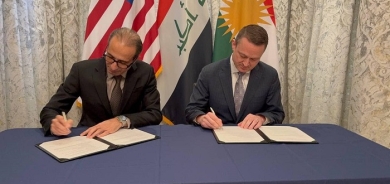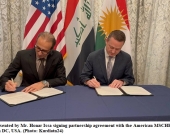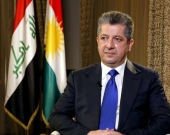Kurdish-Islamist Fighting Spreads to Syrian Oil Fields

The fighting is further evidence that the conflict between rebels and President Bashar al-Assad’s forces that has engulfed Syria since early 2011 has splintered into turf wars that have little to do with ousting him.
In southern Syria, attacks by rebels on gas and fuel pipelines that supply power stations caused widespread electricity outages, Syria’s official news agency said.
Across the border in Jordan, U.S. Secretary of State John Kerry visited a refugee camp and was told by angry Syrians that the United States should set up a no-fly zone and safe havens in Syria to protect them.
The capture of Ras al-Ain by the Democratic Union Party (PYD), a Syrian Kurdish party with links to Kurdish militants in Turkey, rang alarm bells in Ankara.
The Turkish government fears the emergence of an autonomous Kurdish region in Syria could embolden home-grown militants of the Kurdistan Workers’ Party (PKK), which is fighting for autonomy in Turkey.
In a statement late on Wednesday, the Turkish military said Ras al-Ain had fallen under the control of the PYD, which it described as a “separatist terrorist organization”. Fighting in the town had now stopped.
Turkish troops had shot at PYD fighters in Syria after two rocket-propelled grenades fired from Syria struck a border post on the Turkish side of the frontier.
It was the second time in as many days the military has answered in kind after several stray bullets from Syria struck the Turkish town of Ceylanpinar on Tuesday. The military has now strengthened security along that part of the border.
Clashes in Ras al-Ain between Kurdish militias, who broadly support an autonomous Kurdish region, and Islamist fighters of the Nusra Front broke out on Tuesday after Nusra fighters attacked a Kurdish patrol and captured a gunman, the Syrian Observatory for Human Rights said.
The Observatory, a pro-opposition monitoring group, said fighting had now spread deeper into the largely Kurdish province of Hassakeh and battles were raging around the Rumeilan oil field, about 200 km (125 miles) east of Ras al-Ain.
The field had mostly been shut down, opposition activists said, but a few of its pipelines may still be supplying refineries in the government-held cities of Homs and Baniyas.
Since March 2011, when the uprising against Assad began, Syria’s overall oil production has fallen by nearly 60 percent to 153,000 barrels per day last October, the U.S. Energy Information Administration estimates.
Kurdish units have seized an oil field area called Suwaidiya 20 and there are clashes in Suwaidiya oil region 3, according to the Observatory.
Soran Ali













